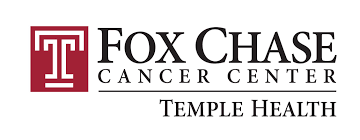
Innovative Patient Education Strategies Continue to be Developed for Lung Cancer Screening

Novel strategies for patient education can help to build trust in and decrease the fear of lung cancer screening among patients.
Novel strategies for patient education can help to build trust in and decrease the fear of lung cancer screening among patient populations who have historically experienced disparities in health care delivery, according to findings from a study presented during the 5th Annual Regional Synergistic Partnership for Enhancing Equity in Cancer Health (SPEECH) Conference and Retreat in Philadelphia, Pennsylvania.1
Lung cancer screening adherence is low overall, especially among patients who belong to minority populations and populations who have historically experienced disparities in health care delivery. Factors contributing to low adherence include fear, a perceived stigma, a lack of awareness of screening offerings, and mistrust of the health care system in general.
Investigators from Temple University in Philadelphia, Pennsylvania, aimed to address the shortcomings of lung cancer screening practices and combat barriers to screening by providing patient education and motivation through novel strategies. As a result, they subsequently created a video library of patient testimonials, a customizable phone app, and community engagement and education events.
The library of video testimonials was designed to provide patient education and ultimately spark motivation for patients to undergo lung cancer screening. These testimonials have previously been used on websites, at community events, and by nonprofits. The library has the potential to be used in conjunction with additional lung cancer screening information to provide a human touch, build trust, and decrease the fear associated with screening.
Investigators are in the process of building a mobile phone app called OptiHealth. The app will have lung cancer screening appointment management capabilities, education resources, and data collection features.
Finally, the study authors hosted in-person and virtual community events that were focused on decreasing the uncertainty associated with lung cancer screening and care and build patient trust in the health care system. These events included an in-person Robot Day, where patients and community members had the opportunity to meet the oncologic surgical team at Temple and further learn about thoracic surgery. They gained exposure to the da Vinci Surgical System via hands-on participation in surgical system training activities. The events were geared towards breaking down barriers that exist between patients and surgical technology, allowing individuals to better understand this technology’s role in cancer care and decrease uncertainty.
In the future, study authors proposed the creation of an increased number and greater variety of patient testimonials advocating for lung cancer screening, specifically those that are aimed at individuals in historically undeserved groups who currently display lower rates of screening adherence. Additionally, the OptiHealth mobile app is currently being furthered developed and will be used in a pilot program for patient populations facing health disparities. OptiHealth will also be assessed to determine how a customizable mobile app can influence lung cancer screening, education, and adherence to lung cancer appointments, especially among those populations with a heightened risk of lung cancer.
Reference
Chin K, Bonnett K, Yong V, et al. Novel strategies for patient education in lung cancer screening and surgery within a population experiencing health disparities. Presented at: 5th Annual Regional Synergistic Partnership for Enhancing Equity in Cancer Health (SPEECH) Conference and Retreat; May 17-18, 2023; Philadelphia, PA. Poster 16.
Newsletter
Knowledge is power. Don’t miss the most recent breakthroughs in cancer care.




